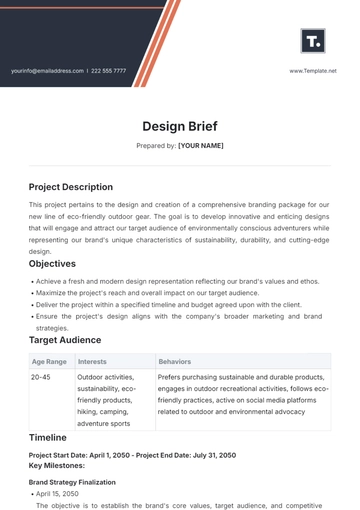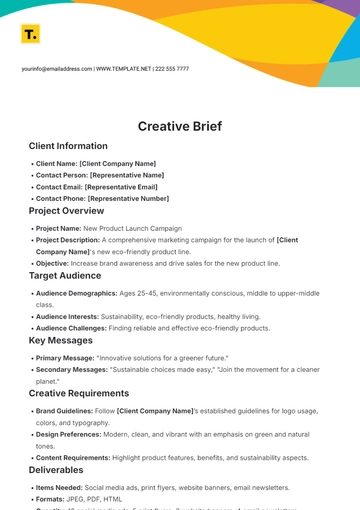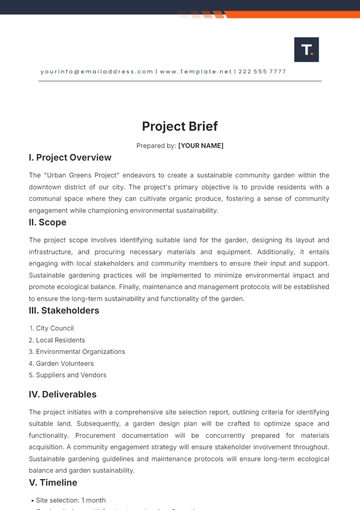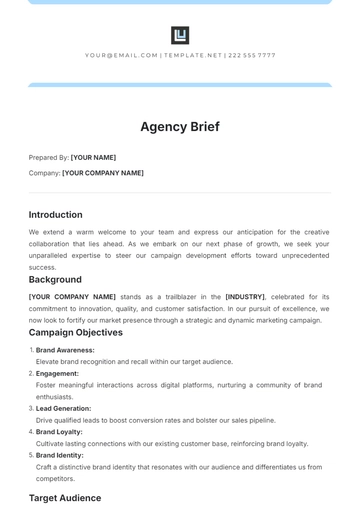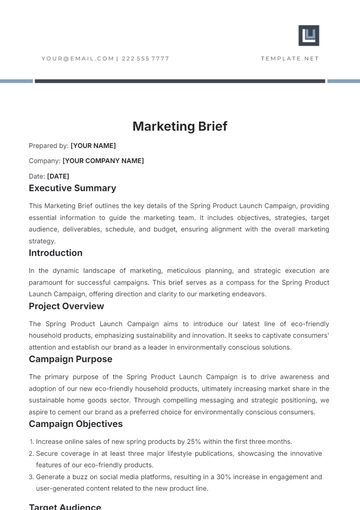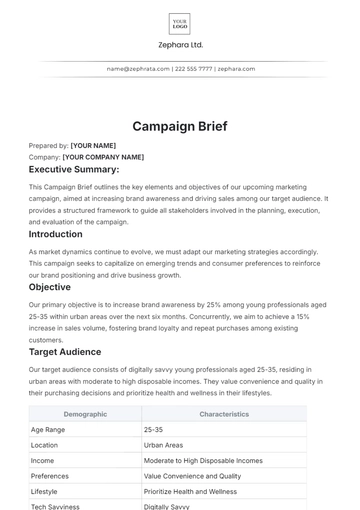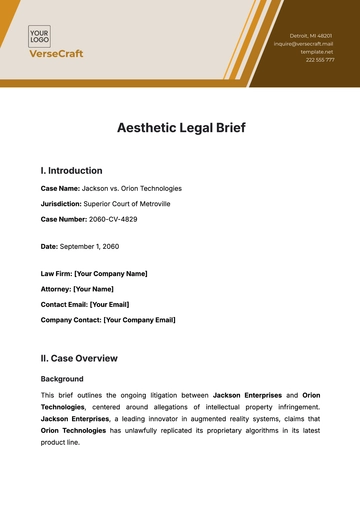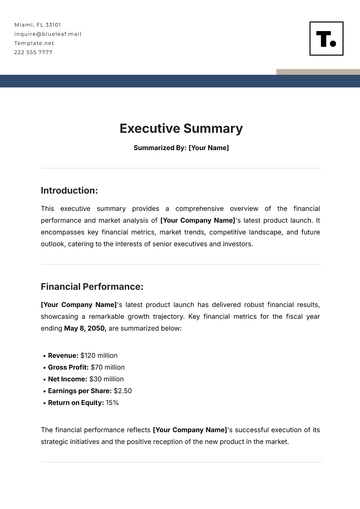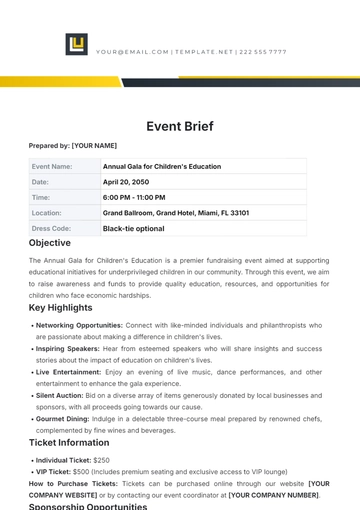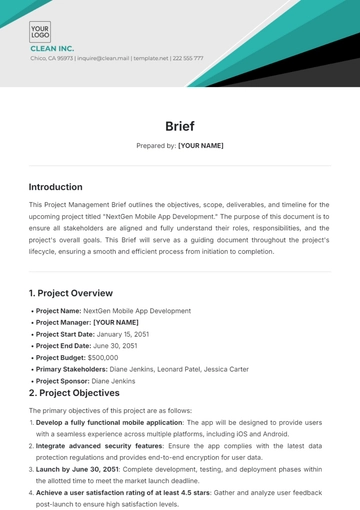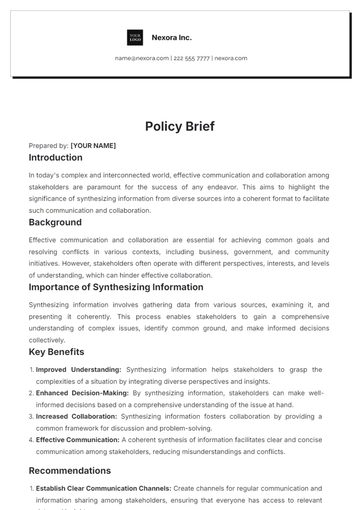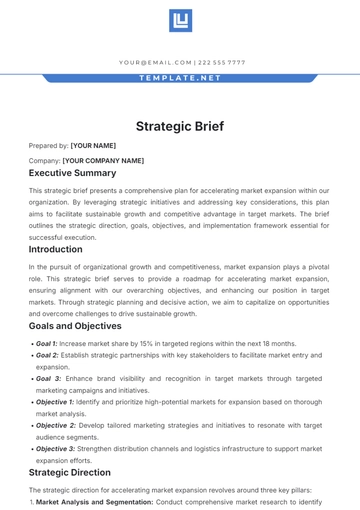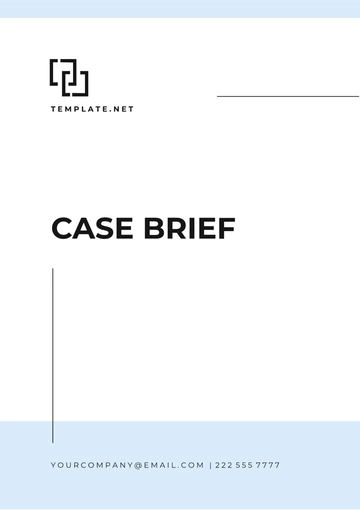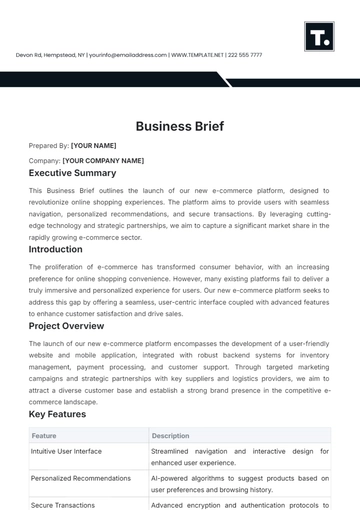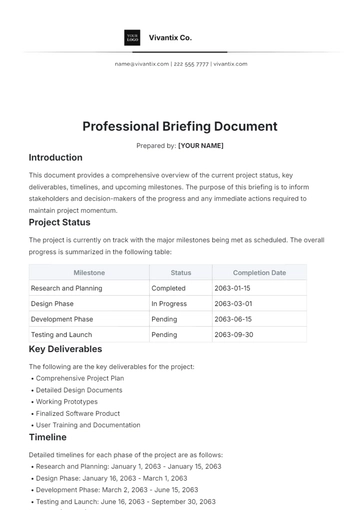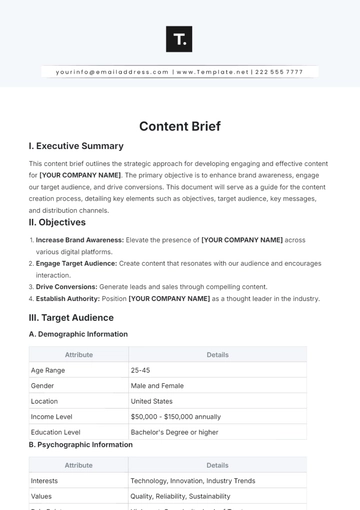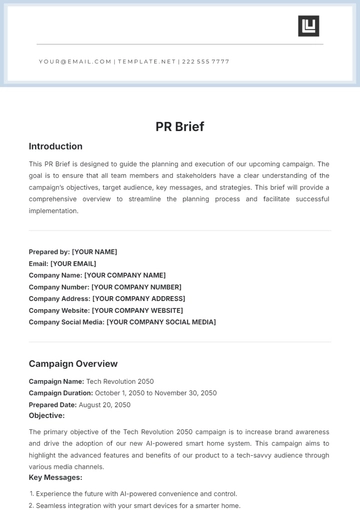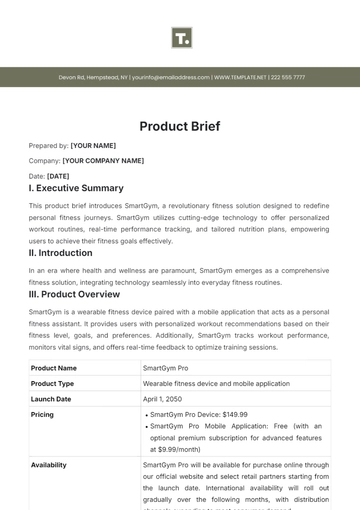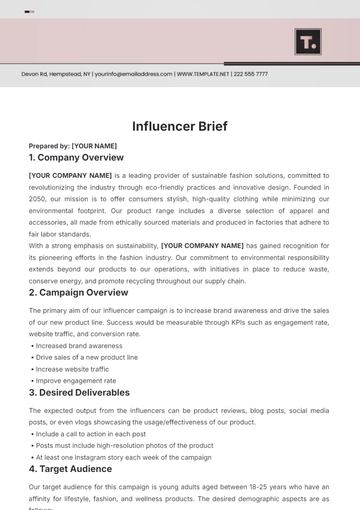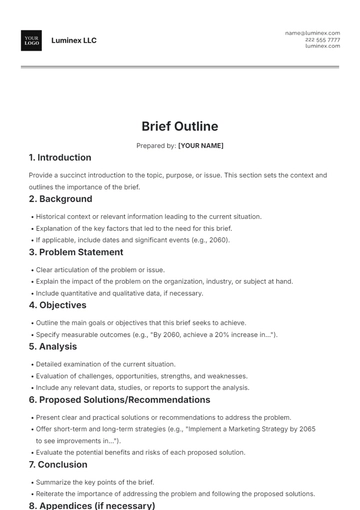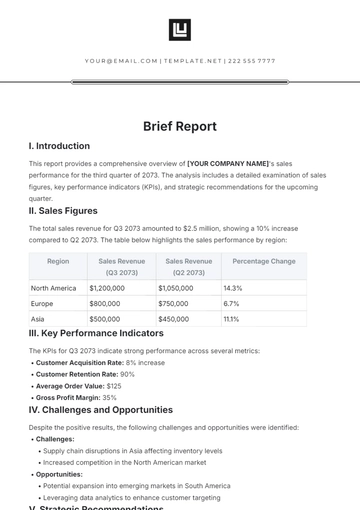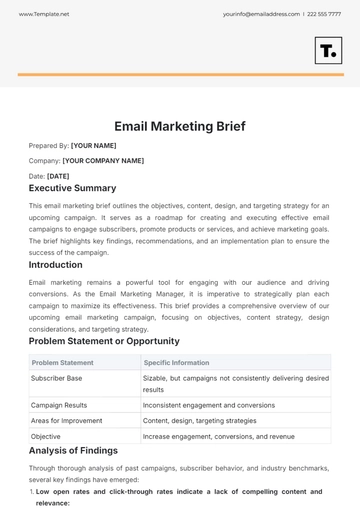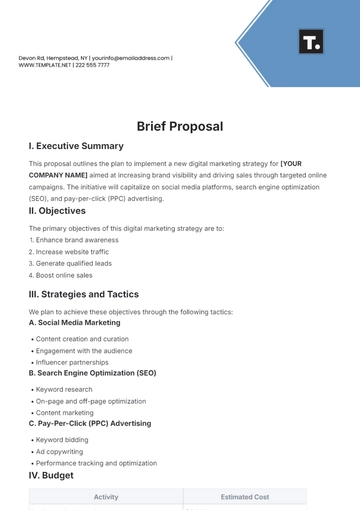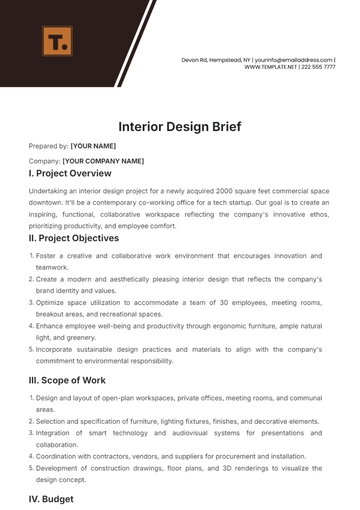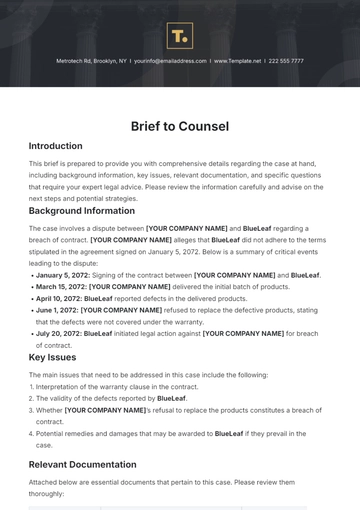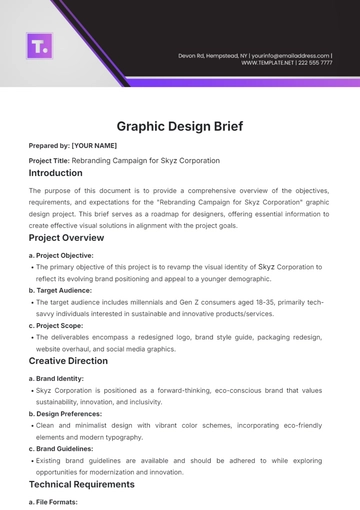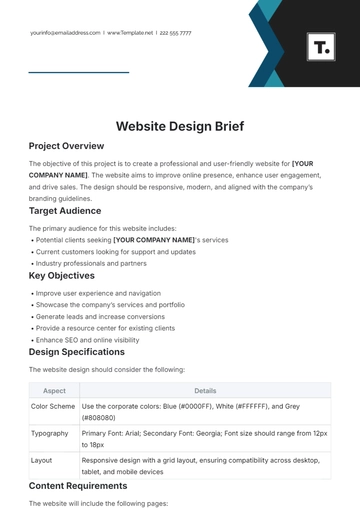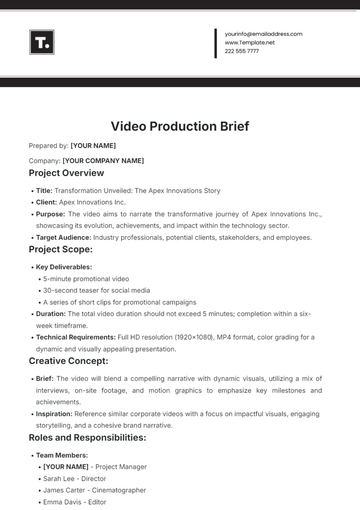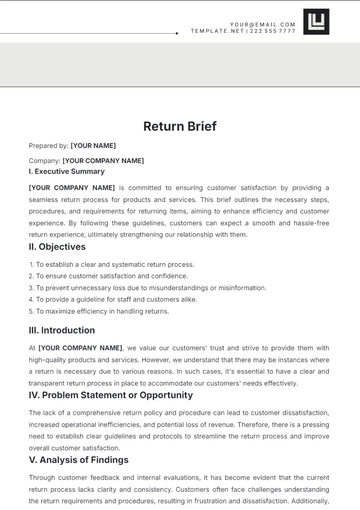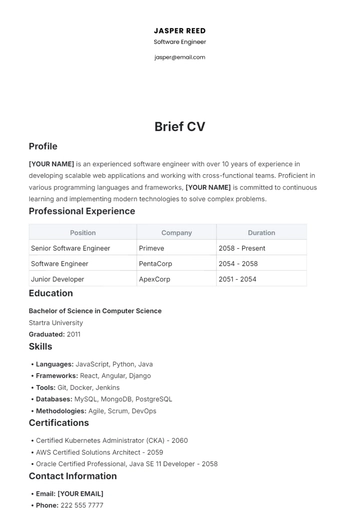Free Law School Case Brief
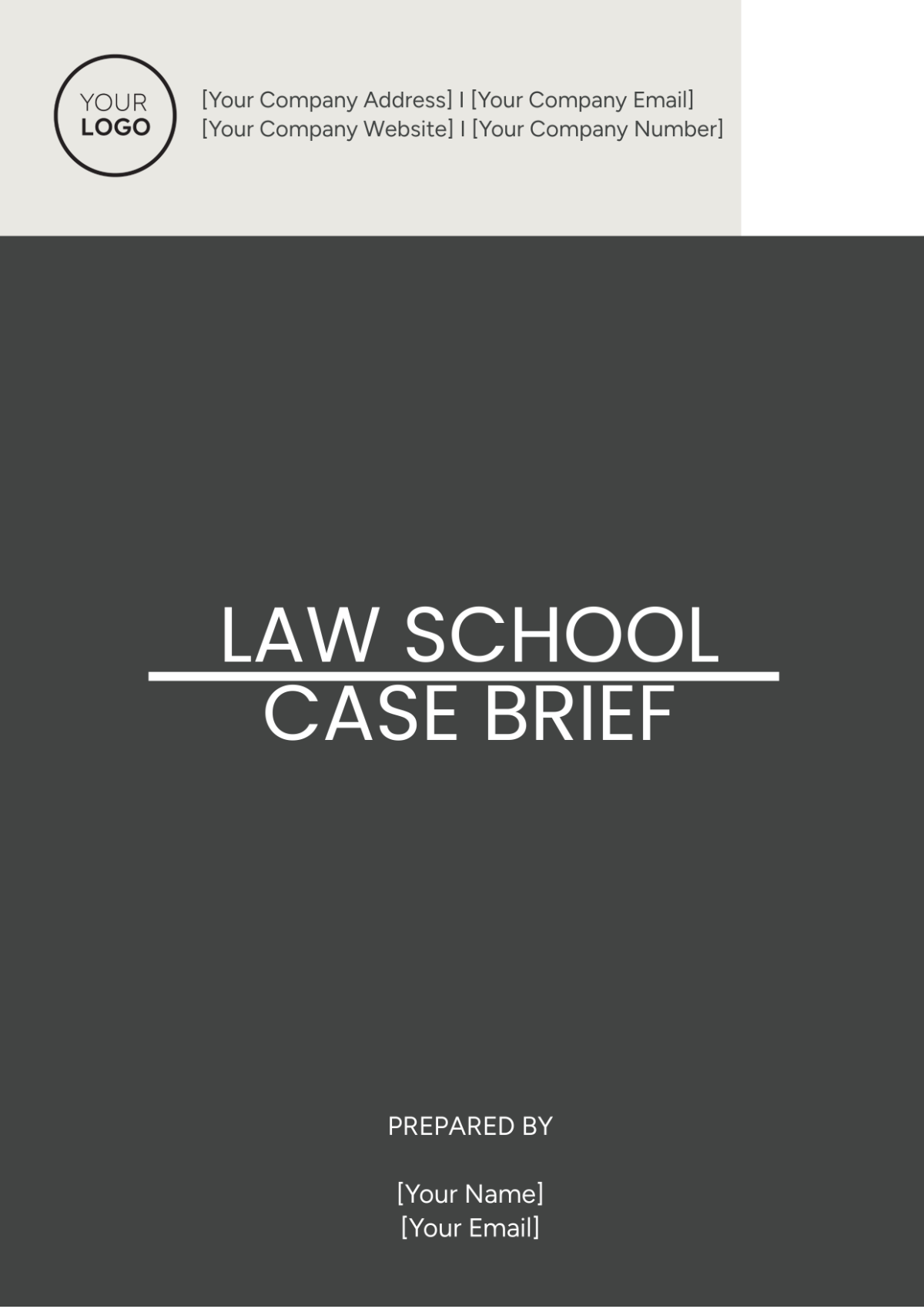
I. Case Overview
Case Name: The People v. Richard Thompson
Court: Supreme Court of the State of New York
Date: June 15, 2060
Case Number: 2060-NY-4571
Judge: Hon. Evelyn Carter
Law School: [Your Company Name]
II. Facts
Richard Thompson, a prominent business executive, was charged with embezzlement and fraud involving approximately $5 million from his company, Thompson Enterprises. The alleged crimes took place between January 1, 2059, and December 31, 2059.
Thompson is accused of using his position to divert company funds into personal accounts. The prosecution presented evidence including financial records, emails, and witness testimonies, indicating that Thompson had been siphoning funds for over a year.
III. Issues
1. Whether the evidence presented by the prosecution sufficiently established that Richard Thompson knowingly and willfully engaged in fraudulent activities.
2. Whether the defense's argument regarding the legality of the transactions and the legitimacy of the funds was valid.
IV. Arguments
A. Prosecution Argument
The prosecution argued that Richard Thompson’s actions clearly constituted embezzlement. Key points included:
Financial Documentation: Evidence of unauthorized transfers and altered accounting records.
Witness Testimonies: Statements from employees and financial officers corroborating the misuse of funds.
Email Correspondence: Communications that indicated Thompson’s awareness and intent to commit fraud.
B. Defense Argument
The defense countered with the following points:
Legitimacy of Transactions: Claiming that the transfers were legitimate business expenses and that the funds were properly accounted for.
Lack of Intent: Arguing that Thompson did not act with fraudulent intent and that any discrepancies were due to accounting errors.
V. Court Decision
The court found Richard Thompson guilty of embezzlement and fraud. The decision was based on the overwhelming evidence presented by the prosecution, including financial records and witness testimonies. The defense’s claims were insufficient to undermine the prosecution’s case.
The court sentenced Thompson to 15 years in prison and ordered him to pay restitution of $5 million to Thompson Enterprises.
VI. Analysis
The case highlights the importance of rigorous financial oversight and transparency in corporate environments. Key takeaways include:
Evidence Collection: Thorough documentation and clear evidence are crucial in proving cases of financial fraud.
Legal Defenses: The effectiveness of legal defenses in financial crimes often hinges on the ability to demonstrate the legitimacy of transactions and lack of fraudulent intent.
VII. Table of Key Evidence
Evidence Type | Description | Exhibit Number | Date of Submission | Relevance |
|---|---|---|---|---|
Financial Records | Unauthorized transfers | Exhibit A | May 10, 2060 | Direct evidence of embezzlement |
Witness Testimonies | Employee statements | Exhibit B | June 5, 2060 | Corroborates fraudulent activities |
Email Correspondence | Communications regarding funds | Exhibit C | June 10, 2060 | Indicates intent and knowledge |
VIII. Conclusion
The conviction of Richard Thompson underscores the need for stringent internal controls and the importance of maintaining integrity in financial practices. The case serves as a significant precedent for similar future cases involving high-profile corporate fraud.
Law School: [Your Company Name]
Address: [Your Company Address]
Email: [Your Company Email]
Phone Number: [Your Company Number]
Law Student: [Your Name]
Email: [Your Email]
- 100% Customizable, free editor
- Access 1 Million+ Templates, photo’s & graphics
- Download or share as a template
- Click and replace photos, graphics, text, backgrounds
- Resize, crop, AI write & more
- Access advanced editor
Introducing the Law School Case Brief Template from Template.net! Crafted for legal scholars, it's more than a mere outline—it's your key to concise analysis. With its editable and customizable features, tailor your briefs effortlessly. Need flexibility? Editable in our AI Editor too! Simplify your legal studies with this essential tool. Get yours today and ace those cases!
